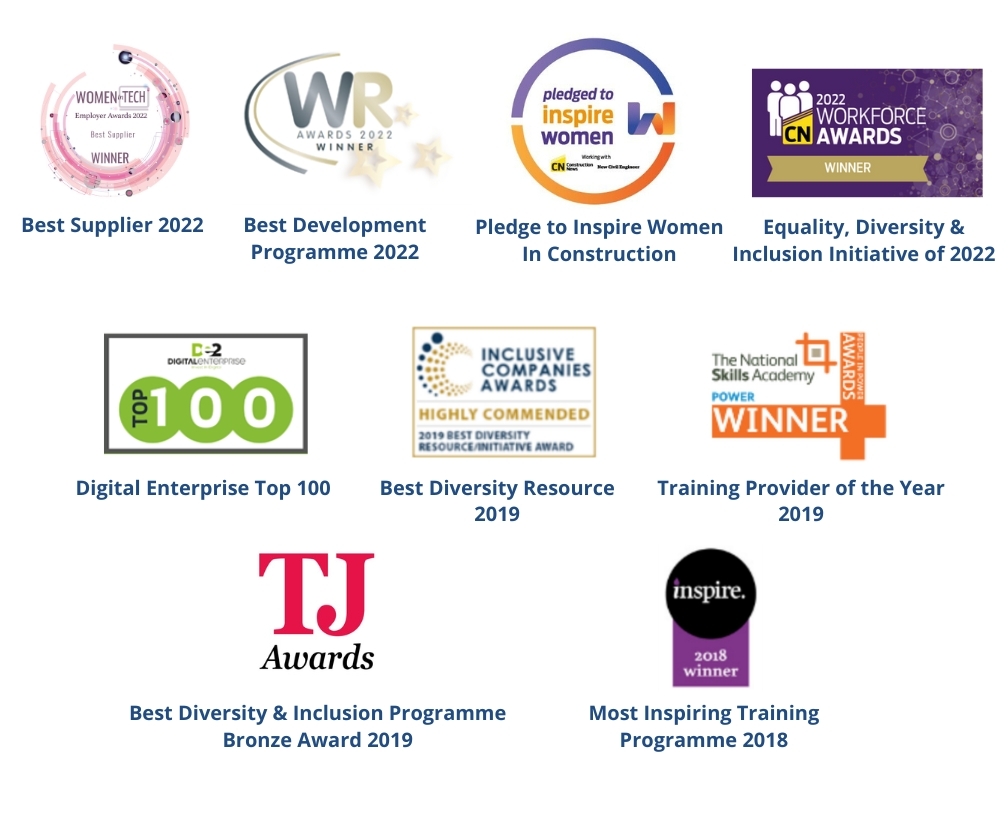Only 1 in 3 leaders1 have a clear view about how inclusive their leadership is, with one third believing they are more inclusive than they are perceived to be by their colleagues. The remaining third have low or little confidence around their inclusivity as a leader, therefore struggling to challenge the status quo and actively guide others.
This is vitally important because what leaders say and what they do makes up a 70% difference as to whether an individual feels included and contributes towards their psychological safety. Which in turn leads to improved organisational performance, adaptability, innovation, and will help retain diverse talent.
Inclusive Leadership is defined as the ability to lead a diverse group of people whilst respecting each person’s unique characteristics without bias, and ensuring a work environment where individuals feel treated fairly, safe, and valued2.
Deloitte have identified six traits of inclusive leadership from their experiences with more than 1000 global leaders and also surveying over 1500 employees on their perceptions of inclusion3.
- Curiosity – they are open and curious about others, listen with empathy and without judgement. Simply, they understand that different views allows for innovation and growth.
- Cognisance – they are aware of their own biases and biases in the system and are working to remove them.
- Cultural Intelligence – they know that diversity is a strength, especially in teams.
- Courage – they admit when they make mistakes and they create space for contribution for others.
- Collaboration – they value diversity of thinking and empower others as well as psychological safety.
- Commitment – they challenge the status quo and are committed to making diversity and inclusion a priority.
When these six traits are put into practice, there are definite benefits within the workplace4, but the success of this is reliant on managers being able to lead collaboratively, with not all being able to do this. If inclusive leadership is done right, the benefits can include:
- Increased trust at all levels of the organisation.
- Better communication between colleagues and management as relationships can be improved.
- The knowledge and expertise of all colleagues is employed, leading to greater creativity and innovation.
- Improved happiness and wellbeing of colleagues as they feel respected and listened to.
Here are five ways to become a more inclusive leader5:
- Invite your team to shadow you. This will expose them to new things and debrief them so they understand why certain decisions were made and they have the opportunity to ask questions.
- Include everyone in the conversation from all backgrounds. Ask for their thoughts and suggestions and make sure they are engaged. It is vital that you really listen to what they have to say and consider how you can use their perspectives and ideas.
- Seek and value others’ perspectives. Ask those who are not like you for their suggestions and inputs into a situation. This will expand your knowledge of different ways of approaching things.
- Expand your circle. Speaking to those who are different to you is vital for new perspectives and ask for recommendations for who else to speak to.
- Ask questions. Learn and ask about your colleagues’ experiences in the workplace, this builds empathy and situational awareness, and can hopefully result in you becoming an ally.
Gradually incorporating the above can kick-start a change in company culture, everyone will start to feel listened to, respected, and encouraged to grow and thrive in their organisation.
The best inclusive leaders have teams who are diverse in opinion, experiences, and skills6, but it doesn’t happen by itself; direct involvement of leaders is required to keep focus and a drive towards inclusivity.
Photo by Windows on Unsplash
1 https://hbr.org/2020/03/the-key-to-inclusive-leadership
2 https://www.betterteam.com/inclusive-leadership
3 https://www2.deloitte.com/us/en/insights/topics/talent/six-signature-traits-of-inclusive-leadership.html
4 https://uk.indeed.com/career-advice/career-development/what-is-inclusive-leadership
5 https://www.forbes.com/sites/forbeshumanresourcescouncil/2021/04/13/five-ways-to-become-a-more-inclusive-leader/
6 https://kelley.iu.edu/programs/executive-education/index.html
